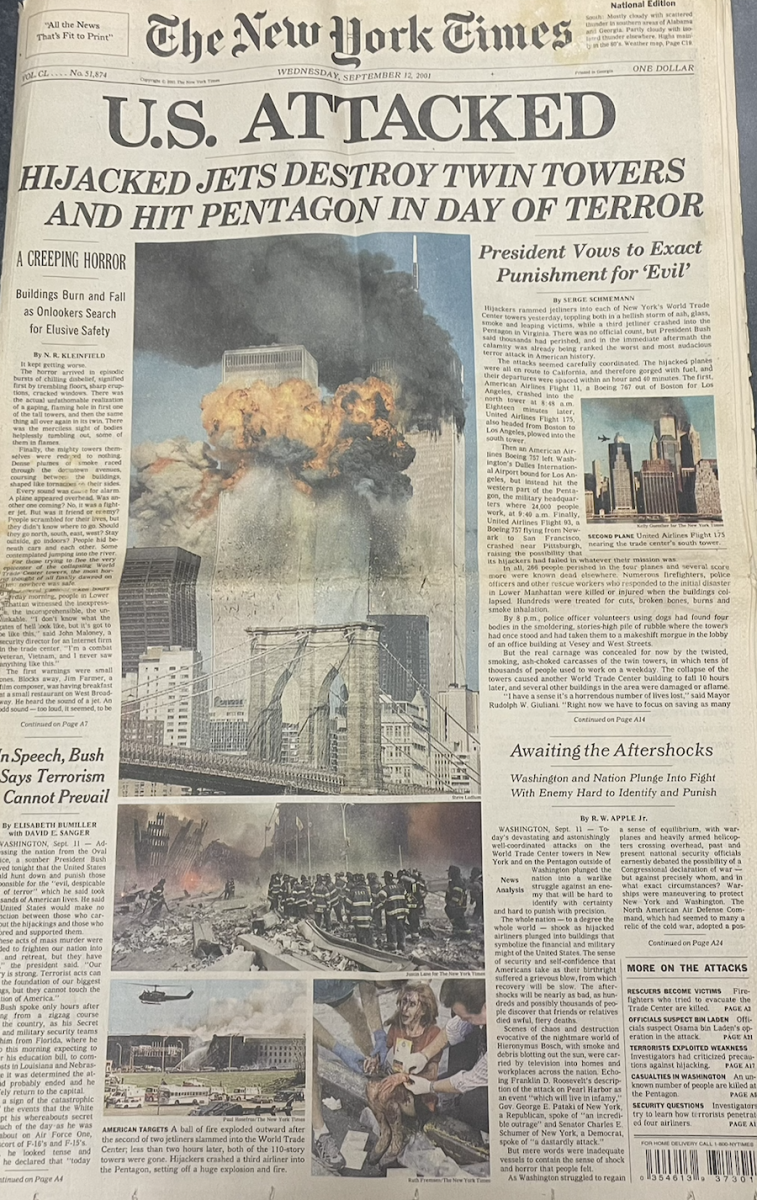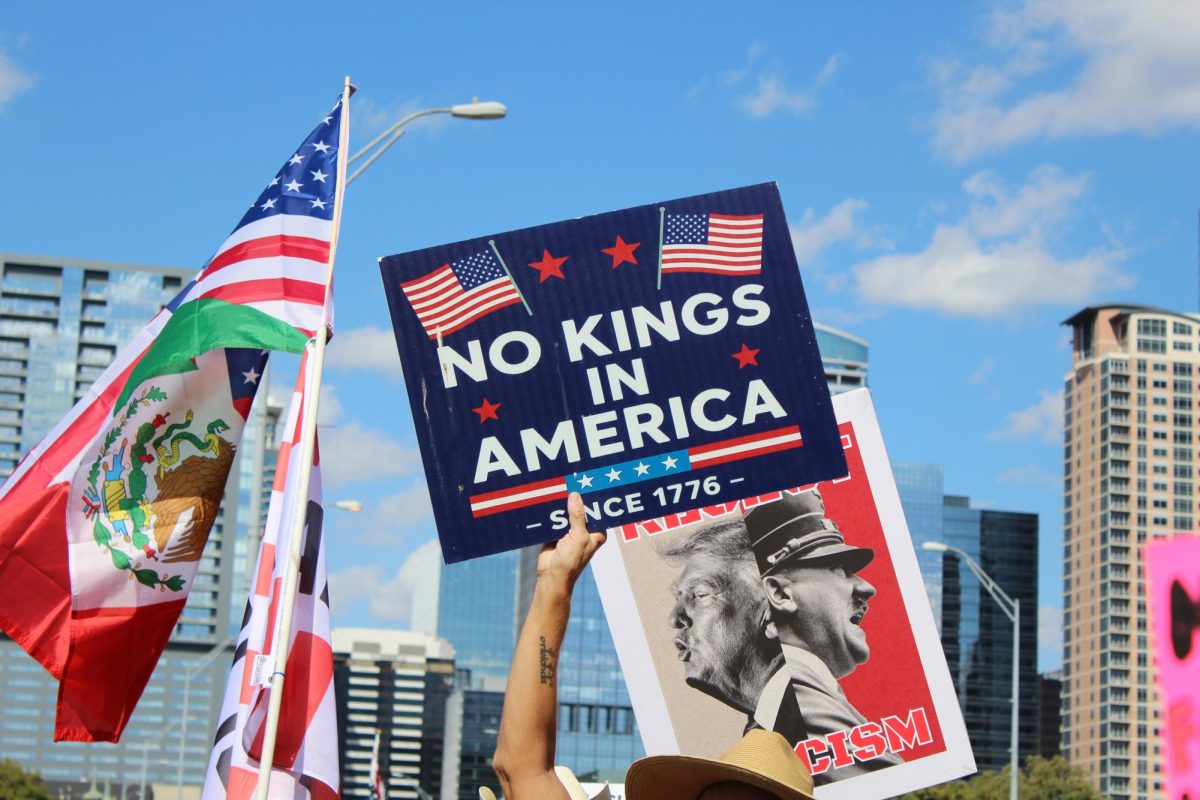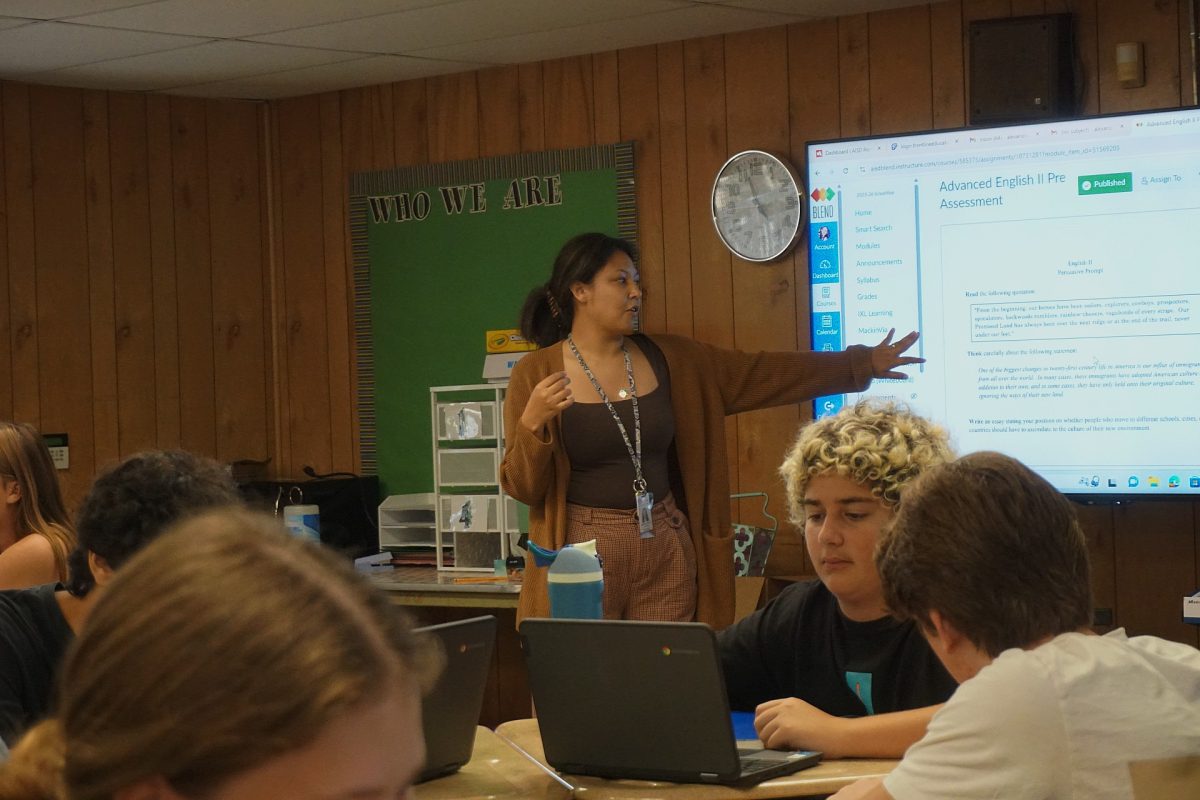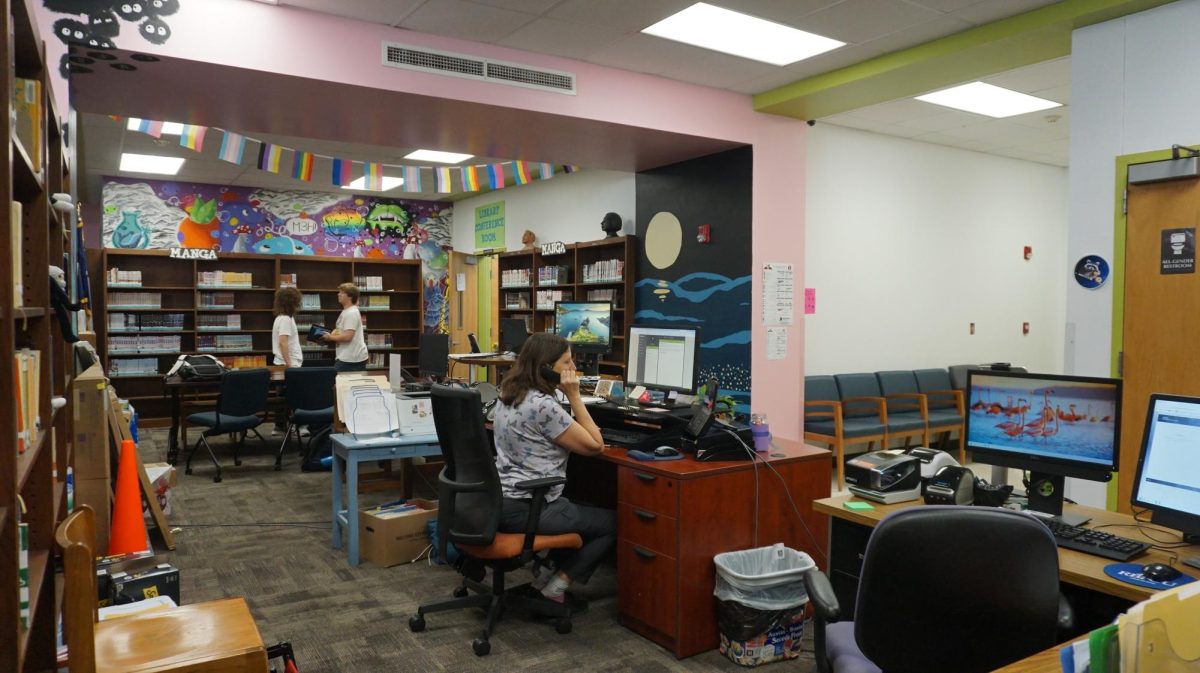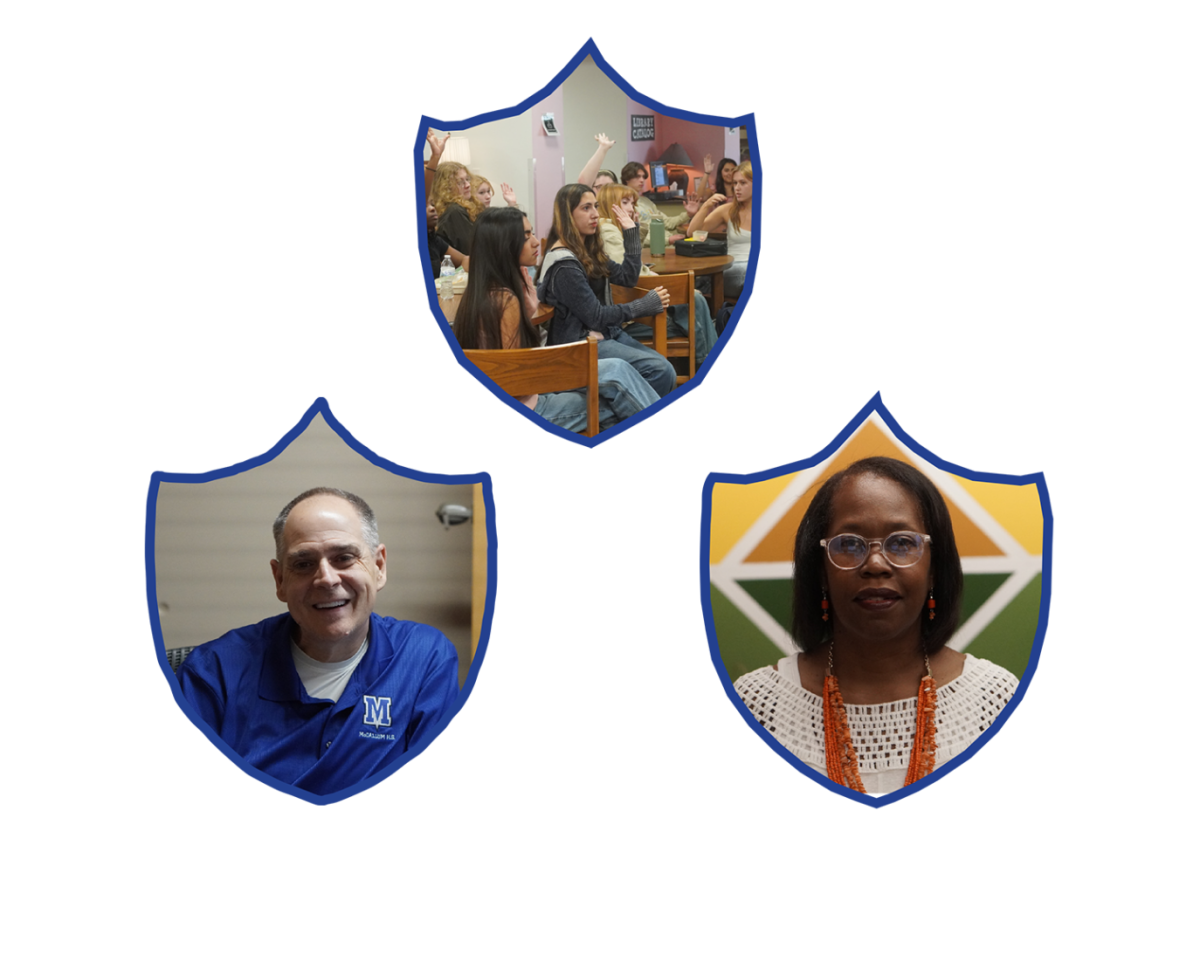The day America stood still, Sep. 11, 2001, was the worst day of many people’s lives. American Airlines Flight 11 crashed into the World Trade Center’s North Tower at 8:46 a.m. on September 11, 2001. At 9:03 a.m., United Airlines Flight 175 crashed into the South Tower. Even though 2001 is getting farther and farther away, the impact of 9/11 hasn’t lessened for many McCallum faculty and staff.
It’s hard for the newer generations to understand the true impact that an event like this had. Commemorative speeches and a short power point can seem tedious to students, especially when these sources have not been updated in some years. However, every faculty member has something for students to take away from these horrific events.
Ceramics teacher Carey West was 20 years old when the terrorist attack took place. On the morning of Sep. 11, she was asleep in her home, then located in Northern California.
“My mom called me, she said that they bombed New York and that she couldn’t get a hold of my sister,” West said.
West’s sister lived in Brooklyn but worked in Manhattan close to the World Trade Center. Her sister’s partner also worked in Manhattan. Her sister had slept in and hadn’t made it to work that day; however, her partner did make it to work and was present when the attack occurred. He worked a few blocks down from the towers, and the impact of the planes hitting blew out the windows in his workplace. He was not significantly physically harmed. The lack of communication made it difficult for West to be at peace until later that day.
“We didn’t have cell phones and I didn’t have a TV at the time,” West said. “So I was getting all my information from my mother.”
The slow spread of information during the terrorist attack was a common theme. Communication technology would not become the recognizable mass we have now till 2007, when Apple released its first-ever iPhone model. Companies in the following years would also release their own models, such as Android in 2008. This left many people in West’s situation: anxiously sitting by the phone for answers.
Principal Andy Baxa was finishing up his college degree in San Marcos and was 23 years old at the time of the attacks. He didn’t have family in New York at the time. Sitting in his room before classes started, he began his daily routine.
“The first thing I did every morning is turn on the TV,” Baxa said. “I always turned on ESPN to catch up on sports from the night before, and it wasn’t ESPN. So I started flipping through the channels and realised that none of the programming is what I thought it was going to be. I woke up right before the second plane hit the tower.”
Following the attack, what unsettled Baxa most was the silence in the sky. While San Marcos does not have a large airport, a fairly large amount of air traffic passes through the city’s airspace due to planes heading to San Antonio. The lack of the humming plane engines was one of the first things Baxa noticed.
“It was the weirdest thing to hear no planes in the sky,” Baxa said. “Classes were also cancelled and didn’t resume until two days later.”
While Baxa was in San Marcos attending school, soccer coach and Latin and sociology teacher Nicholas Martin was already in his fourth year teaching. He was in his room with early bird students before the school day officially started.
“I remember someone coming up to me and saying that there was something going on in New York and to turn on the television,” Martin said. “We were watching ABC, and the news anchor, Peter Jennings, would always smoke whenever something really serious was going on. He was just going through cigarettes.”
Students sat and watched this news coverage until the first bell rang, when the principal told teachers to turn off their TVs.
“Some did and some didn’t,” Martin said.
Whether or not teachers paused watching the news coverage, Martin felt like it was impossible for students or teachers to get anything done in class for the entire day.
“I remember a sense of attack, not for myself but for a country as a whole,” Martin said. “I vividly remember the days after, and it felt like there was no Republican or Democrat.”


